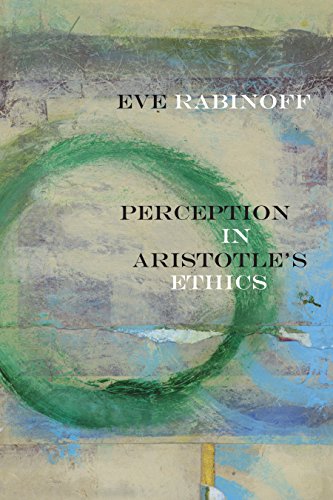
Perception in Aristotle's Ethics
by Eve Rabinoff
Publisher: Northwestern University Press 2018
ISBN-13: 9780810136441
Number of pages: 206
Description:
The book seeks to demonstrate that living an ethical life requires a mode of perception that is best called ethical perception. Specifically, drawing primarily on Aristotle’s accounts of perception and ethics in De anima and Nicomachean Ethics, Eve Rabinoff argues that the faculty of perception (aisthesis), which is often thought to be an entirely physical phenomenon, is informed by intellect and has an ethical dimension insofar as it involves the perception of particulars in their ethical significance, as things that are good or bad in themselves and as occasions to act.
Download or read it online for free here:
Download link
(multiple PDF files)
Similar books
 Philosophy for the Masses: Ethics
Philosophy for the Masses: Ethicsby David Bruce - Smashwords
This book consists of a number of philosophical arguments that I find interesting and that I think that some other people may find interesting. May you be struck by philosophical lightning. My series of books mainly consist of notes in essay form...
(7553 views)
 Justice and the Human Genome Project
Justice and the Human Genome Projectby Timothy F. Murphy, Marc A. Lappé - University of California Press
This book's nine essays probe the potential social uses and abuses of detailed genetic information. Lucid and wide-ranging, these contributions will provoke discussion among bioethicists, legal scholars, and policy makers.
(15856 views)
 Genethics: Moral Issues in the Creation of People
Genethics: Moral Issues in the Creation of Peopleby David Heyd - University of California Press
Unprecedented advances in medicine, genetic engineering, and demographic forecasting raise new questions that strain the categories and assumptions of traditional ethical theories. Heyd's approach resolves many paradoxes in intergenerational justice.
(15989 views)
 A Problem in Modern Ethics
A Problem in Modern Ethicsby John Addington Symonds
In this work, Symonds argues against the belief that homosexuality is acquired. The book includes an historical survey of homosexuality, various modern theories as to its cause, and a section dealing with suggested amendments in legislation.
(14635 views)